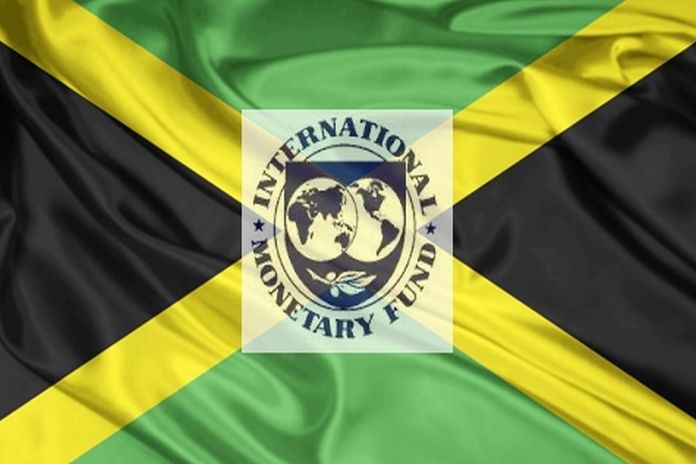KINGSTON, Jamaica: An International Monetary Fund (IMF) team led by Mauricio Villafuerte held meetings in Kingston (and virtually) with Jamaica government counterparts, private sector, civil society, and development partners during April 30 to May 7 to conduct the 2025 Article IV consultation.
At the conclusion of the mission, Villafuerte issued the following statement:
“Over the last decade, Jamaica has successfully reduced its public debt, firmly anchored inflation and inflation expectations, and strengthened its external position. It has built an enviable track record of investing in institutions and prioritizing macroeconomic stability. Jamaica has met recent global shocks and natural disasters in a manner that is agile, prudent, and supportive of growth.
GDP declined in FY2024/25 due to hurricane Beryl and tropical storm Raphael which damaged agriculture and infrastructure and undermined tourism. Nonetheless, economic activity is projected to normalize as these effects wane. Unemployment has fallen to all-time low levels (3.7 percent in January 2025) and inflation has converged to the Bank of Jamaica (BOJ)’s target band of 4-6 percent. The current account has been in a modest surplus for the last two fiscal years with strong tourism revenues and high remittances. The international reserves’ position has continued to improve.
“The outlook points to growth settling at its potential rate once the FY2025/26 recovery is complete and with inflation stabilizing at the BOJ’s target range. Nonetheless, global developments require continued close monitoring. Global downside risks emanating from tighter global financial conditions, lower growth in key source markets for tourism, and trade policy disruptions remain high. Finally, extreme weather events—such as floods, hurricanes, or earthquakes—could negatively affect economic activity.
“The Jamaican authorities continue to implement sound macroeconomic policies, aided by robust policy frameworks. A primary surplus is expected for FY2025/26 leading public debt to fall towards 65 percent of GDP by the end of the fiscal year, the lowest level in 25 years and well below pre-pandemic levels. The bank of Jamaica’s approach to monetary policy has anchored inflation around the mid-point of the inflation target band and inflation expectations have declined close to the upper band of the BOJ’s target range. The lowering of the policy rate in 2024 was justified in view of the temporary nature of the weather-related shocks and the expected convergence of inflation to the BOJ’s target. The current fiscal-monetary policy mix places Jamaica in a good position to respond to the various downside global risks, should they be realized.
“The policy frameworks are benefitting from ongoing improvements. A Fiscal Commission became operational in 2025 and is providing assessments of the macroeconomic and fiscal forecasts as well as the budget’s consistency with Jamaica’s fiscal rules. The wage bill reform has reduced distortions in public sector compensation, increasing both transparency and competitiveness of civil service salaries. Tax and customs administration improvements are increasing compliance. Progress continues with adopting the Basel III framework, introducing a “twin peaks” supervisory regime, expanding the BOJ’s supervisory perimeter, and enhancing consolidated supervision.
“Going forward the wage bill needs to be carefully managed to avoid crowding out other fiscal priorities. At the same time, there is room to improve the efficiency of public spending per recommendations of an Agile Public Expenditure and Financial Accountability assessment completed in June 2024. The fiscal responsibility law could benefit from the adoption of an explicit operational debt anchor below the current debt limit to help guide policies over the medium term, ensure that debt is kept at moderate levels, and build fiscal buffers. Implementing reforms to deepen foreign exchange market and allow greater exchange rate flexibility would strengthen the transmission mechanism of monetary policy. Financial stability should be further bolstered by passing the Special Resolution Regime law and making further improvements to the AML/CFT framework.
“The authorities are implementing policies to foster potential growth and tackle supply-side constraints that inhibit growth. Low productivity has been worsened by structural impediments including high crime, barriers to competition, poor educational outcomes, inadequate infrastructure, and barriers to trade. The authorities are addressing these issues by increasing investments in policing and security (which has led to a sustained decline in major crimes). Efforts are also underway to establish an unemployment insurance and strengthen employment services (including job counseling and job matching). The authorities continue to introduce measures to reduce pollution and incentivize the adoption of low-carbon technologies. Finally, a comprehensive action plan is being developed to improve statistics.
“The IMF team is grateful to the Jamaican authorities and other counterparts for their hospitality and very productive discussions.”





